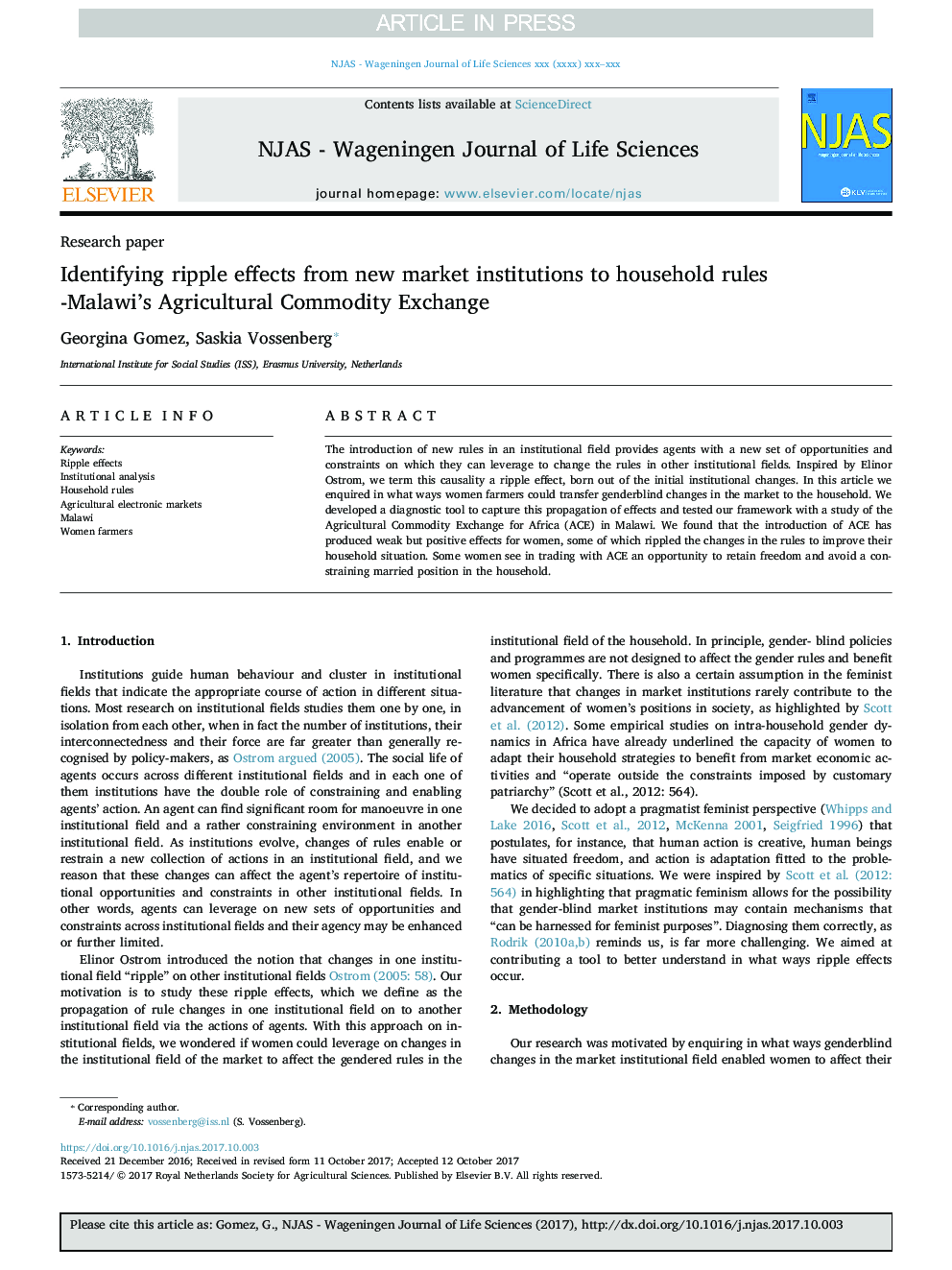| Article ID | Journal | Published Year | Pages | File Type |
|---|---|---|---|---|
| 8877146 | NJAS - Wageningen Journal of Life Sciences | 2018 | 10 Pages |
Abstract
The introduction of new rules in an institutional field provides agents with a new set of opportunities and constraints on which they can leverage to change the rules in other institutional fields. Inspired by Elinor Ostrom, we term this causality a ripple effect, born out of the initial institutional changes. In this article we enquired in what ways women farmers could transfer genderblind changes in the market to the household. We developed a diagnostic tool to capture this propagation of effects and tested our framework with a study of the Agricultural Commodity Exchange for Africa (ACE) in Malawi. We found that the introduction of ACE has produced weak but positive effects for women, some of which rippled the changes in the rules to improve their household situation. Some women see in trading with ACE an opportunity to retain freedom and avoid a constraining married position in the household.
Keywords
Related Topics
Life Sciences
Agricultural and Biological Sciences
Agricultural and Biological Sciences (General)
Authors
Georgina Gomez, Saskia Vossenberg,
